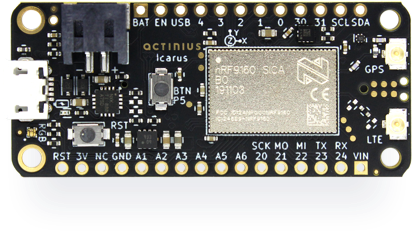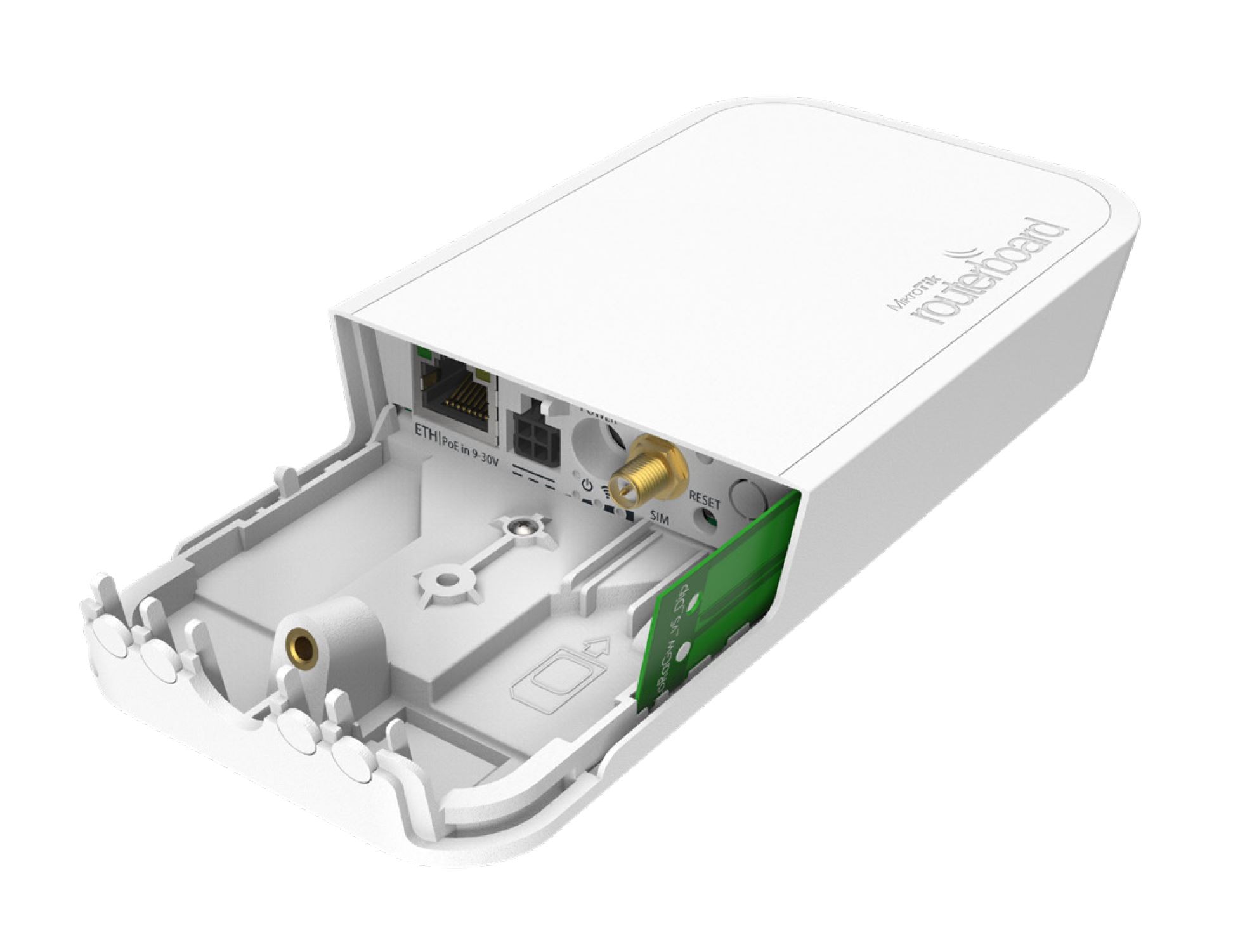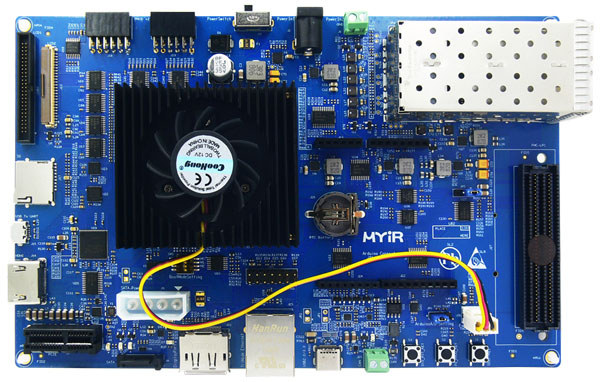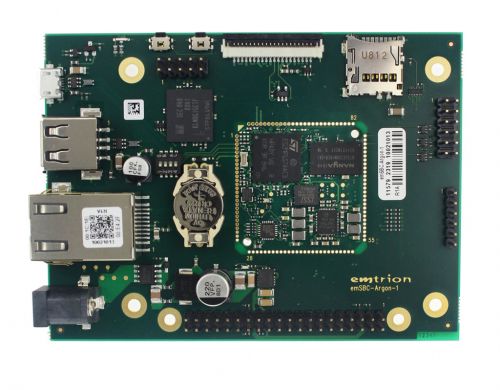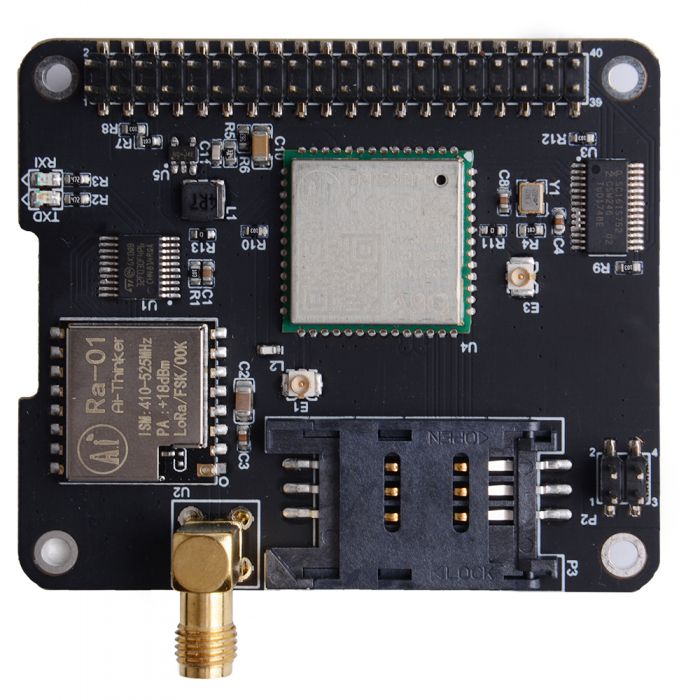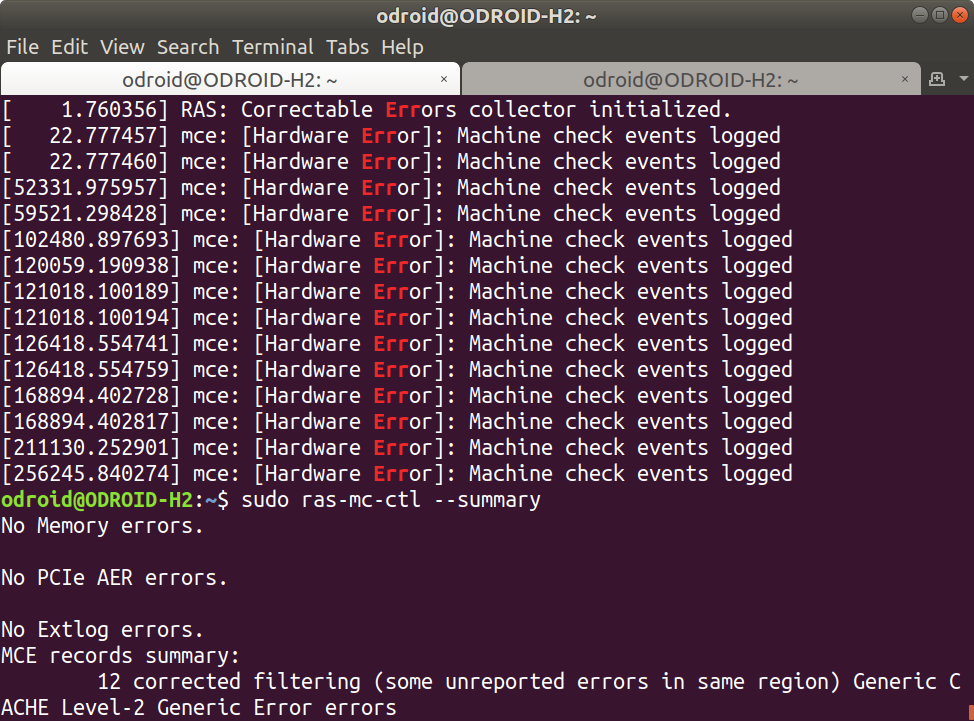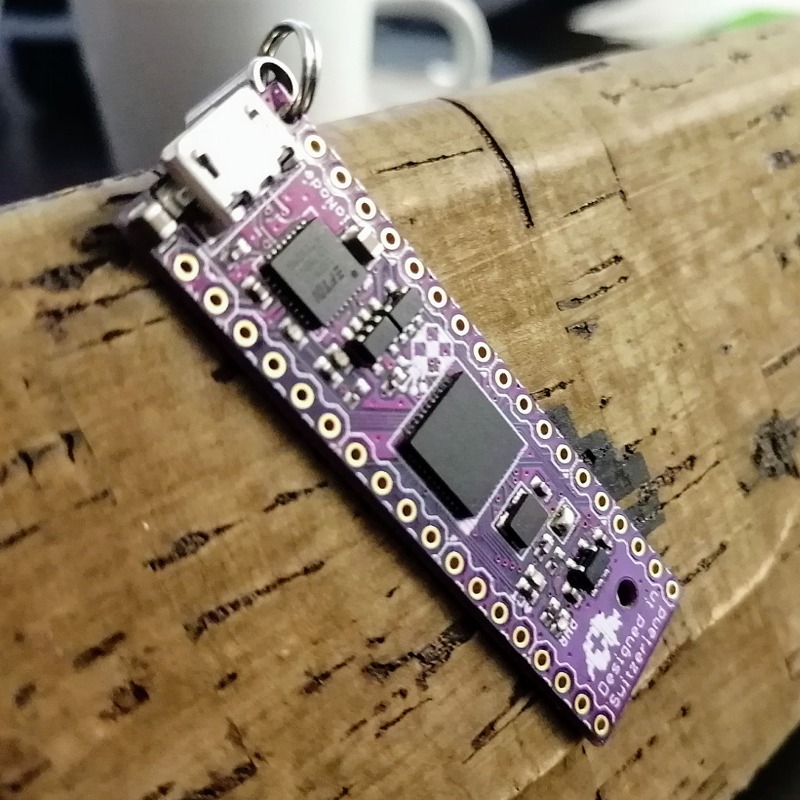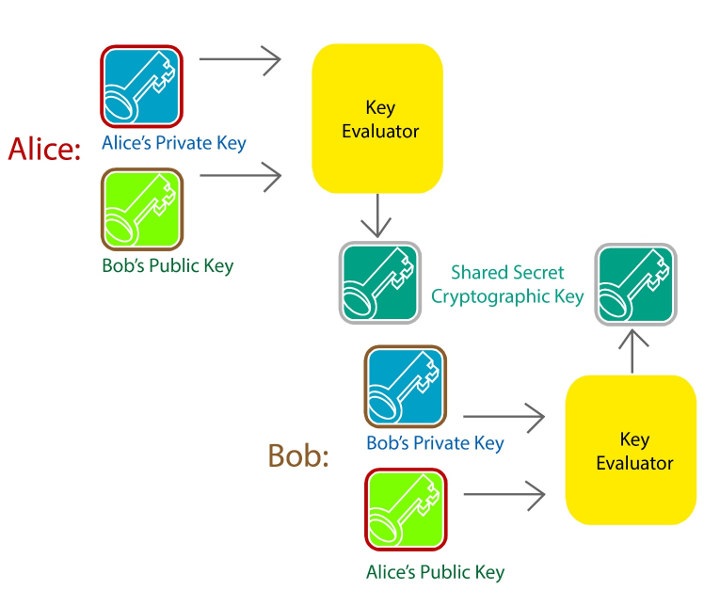The new Icarus IoT board from Actinius, uses the Nordic nRF9160 SiP, a powerful yet low power system in a package designed for use with GPS and LTE-M & NB-IoT cellular data, also found in Ruuvi node which we covered a few months ago. The board’s purpose is for mobility and ease of project tracking anywhere, and can be found in application scenarios such as fleet management and security, cargo tracking, or asset monitoring, and many more. The board has power inputs for solar panel, USB or LiPo/Li-Ion Battery, which widens the boards mobile nature, and on-site, in-the-field capability. Since the form factor follows Adafruit Feather, the Icarus board benefits of additional component options for prototyping and DIY electronics projects. The nRF9160, by Nordic Semiconductor, is a SiP (System in a Package) that carries an extensive line of embedded software and hardware. As we had reported the nRF9160 SiP low-power […]
MikroTik is Launching a new set of LoRa products this summer
MikroTik, the Latvian network equipment manufacturer, is reportedly launching a new set of IoT LoRa devices this summer. MikroTik who has been traditionally known for its wireless technologies, especially products related to wireless networking like routers, switches, antennas, and others, is going full fledged in support of LoRa network, the promising LPWAN technology for IoT applications. MikroTik announced a new LoRa based Gateway product in Vienna back in March 2019 during the MUM Europe MikroTik User Meetings. It was a combination of a wAP 2GHz outdoor AP with a LoRaWAN card inbuilt inside and will work just like every other LoRa gateways out there. The gateway is expected to support both public and private network server. According to MikroTik, they promised to cut down the high-end prices of LoRa gateway: We will undercut that price be a very very big difference, so our LoRa gateway will much much more affordable than […]
MYIR Announces Xilinx Zynq UltraScale+ MPSoC SoM and Development Board
MYIR Technology has been selling Xilinx Zynq-7000 FPGA + Arm systems-on-module since 2016, but the Chinese company has now announced new modules based on the more powerful Xilinx Zynq Ultrascale+ MPSoC with Arm Cortex-A53 cores, Arm Cortex-R5 cores, and Ultrascale FPGA fabric, as well as a corresponding development board. MYC-CZU3EG Zynq UltraScale+ MPSoC CPU Module CPU module specifications: MPSoC – Xilinx Zynq UltraScale+ XCZU3EG-1SFVC784E (ZU3EG, 784 Pin Package) MPSoC with quad-core Arm Cortex-A53 processor @ 1.2 GHz, dual-core Cortex-R5 processor @ 600 MHz, Arm Mali-400MP2 GPU, and 16nm FinFET+ FPGA fabric (154K logic cells, 7.6 Mb memory, 728 DSP slices) System Memory – 4GB DDR4 @ 2,400MHz Storage – 4GB eMMC Flash, 128MB QSPI Flash On-module chips Gigabit Ethernet PHY USB PHY Intel Power Module Clock Generator 2x Samtec 0.5mm pitch 160-pin high-speed headers bringing out Networking – Gigabit Ethernet USB – USB 2.0 interface 4x PS GTR transceivers along with […]
Emtrion emSBC-Argon Features STM32MP1 Dual Cortex-A7 / M4 Processor
The latest board to use the STM32MP1 dual Cortex-A7 and the Cortex-M4 processor is the Emtrion emSBC-Argon, which adds to SBC’s such as the PanGu Board. The emSBC-Argon, is a powerful yet reasonably priced SBC that is feature-rich and out-of-the-box ready. The low-power needs of the board enable it to run real-time processing. Protocols such as PROFINET, EtherCAT, EtherNet/IP are all available and ready to run real-time processes and communication applications. Key Features: STM32MP157AAC processor from STMicroelectronics Arm Dual Cortex-A7 @ 650MHz – 2470 DMIPS Arm Cortex-M4 @ 200MHz – 250 DMIPS Co-processor: ARM Neon, FPU, and 3D GPU Operating system: Linux or Android Virtualization capable (Jailhouse) Up to 512 MB DDR3L SDRAM 8GByte (up to 64 GB) eMMC Flash Up to 8 MB of QSPI-NOR-Flash 2x FD-CAN 2.0 Dimensions: 104.5 x 77.5 mm The emSBC-Argon is capable of virtualization using Jailhouse, for those real-time functions that require breaking down […]
Docker Pi IoT Node(A) Adds LoRa, GPRS and GPS to Raspberry Pi Board
The Docker Pi IoT Node(A) is the latest addition to the Docker Pi series of modules meant to enhance IoT capability and expand on the Raspberry Pi family of SBCs. Although it is mountable on the Raspberry Pi SBC, the HAT form factor allows it to be used with other similar single board computers such as Rock64 board. The Docker Pi IoT Node(A) supports GPS/BDS (Beidou), GSM, and LoRa. The add-on board interfaces to the host over I2C, in order to control LoRa & GSM connectivity, as well as the GPS/BDS module through SC16IS752 chip. There are a number of code examples and instructions that can be found on the Wiki. The unit can also be controlled directly without programming, and all the GPIO pins are extended so the board can stack on other HAT compatible boards, in appropriate layers. Specifications GPRS section Low power consumption, standby sleep current <1mA […]
Checking Out Machine Check Exception (MCE) Errors in Linux
I recently reviewed ODROID-H2 with Ubuntu 19.04, and noticed some errors messages in the kernel log of the Intel Celeron J4105 single board computer while running SBC-Bench benchmark:
|
1 2 3 4 5 6 7 8 9 |
[180422.405294] mce: [Hardware Error]: Machine check events logged [180425.656449] mce: [Hardware Error]: Machine check events logged [180483.582825] mce_notify_irq: 17 callbacks suppressed [180483.582827] mce: [Hardware Error]: Machine check events logged [180484.991484] mce: [Hardware Error]: Machine check events logged [180594.700684] mce_notify_irq: 13 callbacks suppressed [180594.700686] mce: [Hardware Error]: Machine check events logged [180858.202115] mce: [Hardware Error]: Machine check events logged [181178.047031] mce: [Hardware Error]: Machine check events logged |
I did not know what do make of those errors, but I was told I would get more details with mcelog which can be installed as follows:
|
1 |
sudo apt install mcelog |
There’s just one little problem: it’s not in Ubuntu 19.04 repository, and a bug report mentions mcelog is not deprecated, and remove from Ubuntu 18.04 Bionic onwards. Instead, we’re being told the mcelog package functionality has been replaced by rasdaemon. But before looking into the utilities, let’s find out what Machine Check Exception (MCE) is all about from ArchLinux Wiki: A machine check exception (MCE) is an error generated by the CPU when the CPU detects that a hardware error or failure has occurred. Machine check exceptions (MCEs) can occur for a variety […]
Dooba ioNode Microchip AVR Development Board Comes with a C programming SDK
The new Dooba ioNode development board is multifunctional and can be used for projects with space limits. The board features Microchip ATMEGA1284P AVR microcontroller, Dooba’s open-source embedded development ecosystem boasts of a variety of add-on modules which provide the board with increased functionality. These modules will work perfectly with the board and with any project that supports an SPI interface. Some of these add-on modules are: An Aecho MP3 player Nomad LiPo battery Inpad user input module MicroSD socket in SIP or DIP versions The development board is available with either male or female headers. It is also shipped with an IOPROTO prototyping board. You can also choose whether you want the headers already soldered on the top, bottom, or not soldered. The ioNode also features a USB port with USB-UART for programming. Specifications of the Dooba ioNode Core CPU Clock: 10MHz Flash: 128 Kb RAM: 16 Kb I/O 29x […]
Group Theoretic Cryptography (GTC) Offers an Alternative to TLS’s ECC/RSA Security for Microcontrollers
The Transport Layer Security (TLS), sometimes incorrectly referred as its predecessor: Secure Sockets Layer (SSL), helps securing messages over the network using symmetric cryptography, and optionally public-key cryptography (aka asymmetric cryptography). This works well in servers and computers, but with the Internet of Things, even low-power sensor nodes would benefit from secure communication. The trouble is that today’s commonly-implemented RSA- and Diffie-Hellman-type public-key protocols have a memory footprint that will not fit on resource-constrained microcontrollers systems, e.g. Arm Cortex-M0 based ones, and power consumption may also be an issue since many of those are battery-powered. I’m writing about this topic today, as there may be a better alternative for resource-constrained microcontrollers which I noticed in Arm Techcon 2019 schedule, with SecureRF Corporation’s session entitled “When it comes to connect IoT devices, how small is small?” that will present an alternative to TLS’s ECC and RSA based security that relies on […]


